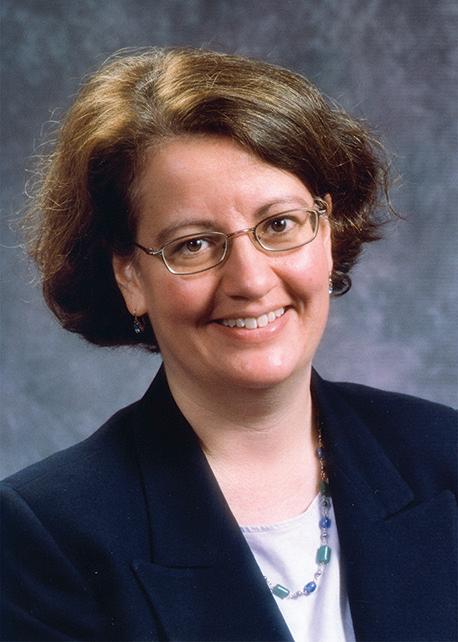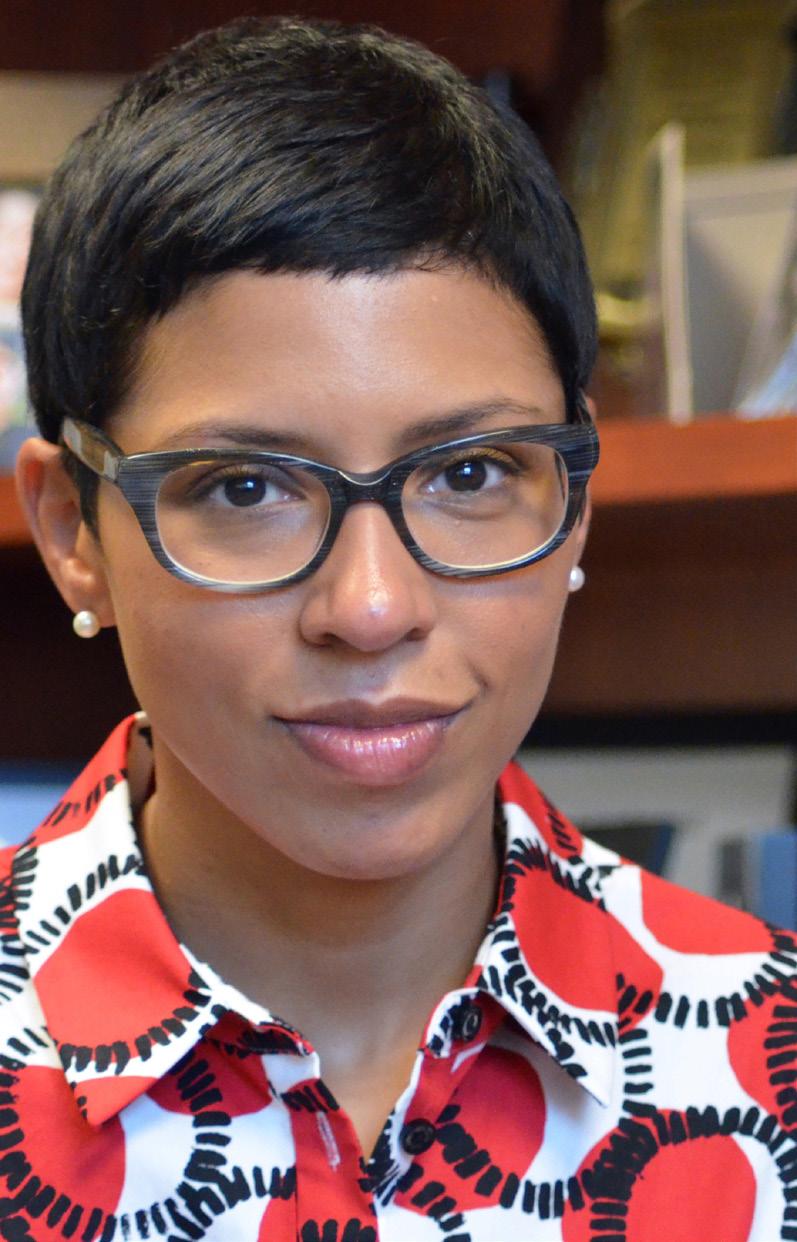
7 minute read
NEW FACULTY
PHOTO BY BRITTANY HOSEA-SMALL
FRESH FACES
LATEST CROP OF NEW PROFESSORS CONTINUES BERKELEY LAW’S STRONG HIRING TREND

PHOTO BY BRITTANY HOSEA-SMALL
—Dean Erwin Chemerinsky Berkeley Law’s outstanding faculty has an infusion of fresh new talent: Six fulltime professors whose expertise covers a wide spectrum.
The new additions — two senior scholars, three junior faculty, and a clinical professor — study a broad range of topics. But all say they’re delighted to put down roots at the law school, which has made 28 faculty hires since 2017.

ASSISTANT PROFESSOR ANDREW BAKER
Baker, who holds a Ph.D. and J.D. from Stanford, joins a top-ranked and already exceptional business and corporate law group. He’s excited to work with faculty members who have been friends and mentors for years.
“There is not a better place to study corporate law right now than at Berkeley,” he says. “What is uniquely great for me is that Berkeley is filled with scholars who have expertise both in substantive law and institutional details, as well as empirical methodology and the application of economic principles to the law. I won’t have to walk far to find someone who can help me with any research question I will have.”
A former litigation consultant, Baker’s scholarly work explores the potential connection between changes in corporate governance standards and a decrease in labor bargaining power as well as the area of securities regulation and litigation, particularly how expert evidence is used in court.
“There has been a steady increase in the empirical study of the law and legal institutions, and part of my research has been focused on how we can ensure that we’re doing the best possible job at drawing inferences from data,” Baker says.

ASSISTANT CLINICAL PROFESSOR STEPHANIE CAMPOS-BUI
For Campos-Bui — who earned her B.A. and J.D. from Berkeley — her appointment to clinical professor is the latest in a long line of accomplishments. She worked for the East Bay Community Law Center (EBCLC) and the Policy Advocacy Clinic (PAC) in law school, then was a Berkeley Law Public Interest Fellow at EBCLC right after graduation.
Campos-Bui worked her way up from teaching fellow to supervising attorney to deputy director of PAC, and now to clinical professor. She also recently won a UC Berkeley Chancellor’s Award for Community-Engaged Teaching for her extensive work on the harmful effects of juvenile and criminal legal system fees and fines, a cornerstone of PAC’s work in recent years.
In all of her roles, Campos-Bui has seen firsthand the impact clinical work can have, on both the students and the law. She’s eager to continue leading PAC’s work to end the ways the criminal legal system drains wealth from the vulnerable, particularly Black, brown, and indigenous communities.

PROFESSOR HANOCH DAGAN
Chemerinsky calls Dagan, who will join the faculty in July 2023, “one of the world’s most renowned scholars in the area of the private law.” Dagan, who has taught at Tel Aviv University for almost three decades, focuses on private law theory: the conceptual, normative, and critical analysis of the legal arenas that most profoundly affect our social and economic life, including property, contracts, and torts.
“Private law governs our relationships to each other in all the most important spheres of our lives: in the market, the workplace, the neighborhood, and our most intimate relations,” he says. “My work offers a compass, a framework that points the way between the positive and the normative, the law as it is and as it should be. I want to give lawyers the tools they need to help reshape private law so it lives up to its promise.”
The “inspiring and generative” Berkeley Law faculty was a strong draw for his move, as were the school’s students — and its dedication to the public interest.

ASSISTANT PROFESSOR DAVID HAUSMAN
Hausman, who earned his J.D. and Ph.D. at Stanford, calls himself “a recovering political scientist.”
“But one thing I’m trying not to recover from is the habit of thinking hard about cause and effect,” he says. “It turns out that lots of the questions that courts want answers to are actually empirical questions, and the statistical methods that I learned in my political science Ph.D. program sometimes point the way to answers — or at least to more questions.”
Hausman spent three years working with the American Civil Liberties Union’s Immigrants’ Rights Project as a Skadden Fellow, and his scholarly agenda reflects that work. He says his research asks, empirically, who gets deported from the United States, and why — questions that are hard to answer if you look at the law on its own. He’s teaching Civil Procedure this fall and is relishing the idea of working with Berkeley Law students.
“In graduate school, I thought there was nothing better than sitting around talking about the world. Now I know that there is something better: doing the same thing with students and colleagues at Berkeley,” Hausman says. “I study immigration enforcement with social science methods, and this is the place to do it, given Berkeley’s public interest law tradition and its incredible social scientists.”

PROFESSOR SHARON JACOBS
“Berkeley Law embodies the best of this place,” says Jacobs, who was born and raised in Berkeley and whose work examines the intersection of energy, environmental, and administrative law. “The students are unafraid to pursue change in the law and in the world more broadly. Our faculty are supportive and collegial while producing cutting-edge scholarship.
Jacobs, who comes to Berkeley Law after eight years at Colorado Law, will work closely with the school’s Center for Law, Energy & the Environment, a leader in combating climate change, and teach Energy Law & Policy this fall.
She’s most interested in the role the law and regulatory policy play in navigating “one of the greatest upheavals in energy production and use that the world has ever seen,” and is particularly focused on the nature of the legal institutions that make and implement energy policy.
A classically trained cellist, Jacobs says she relies on her performance background to help her connect with an audience of students when she’s lecturing.
“In both fields, we agonize — appropriately, in my view — about how to be faithful to the text and its purpose,” she says.

ASSISTANT PROFESSOR EMILY RONG ZHANG
Zhang, an empirical political scientist with a J.D. and Ph.D. from Stanford, is a former voting rights attorney whose scholarly focus is racial justice and voting. She worked with the American Civil Liberties Union's Voting Rights Project as a Skadden Fellow.
Zhang says her training informs her scholarship, and shapes her thinking, in every way, pushing her to ask questions about truth — and data to back up or disprove claims.
“Our democracy is dealing with so many ongoing problems and facing so many imminent threats, and my research is motivated by that reality,” she says. “In particular, minority voting rights and access to the ballot box are two issues that scholars in my field have long struggled with — and that have gotten more urgent in recent years.”
She notes the extraordinary nature of how elections make the transfer of power relatively ordinary. Attempts to undermine public faith and confidence in such a “mighty but underappreciated institution” deserves real concern, she adds.
Zhang, who will teach Civil Procedure this fall, says she’s thrilled about “every aspect” of Berkeley Law.







